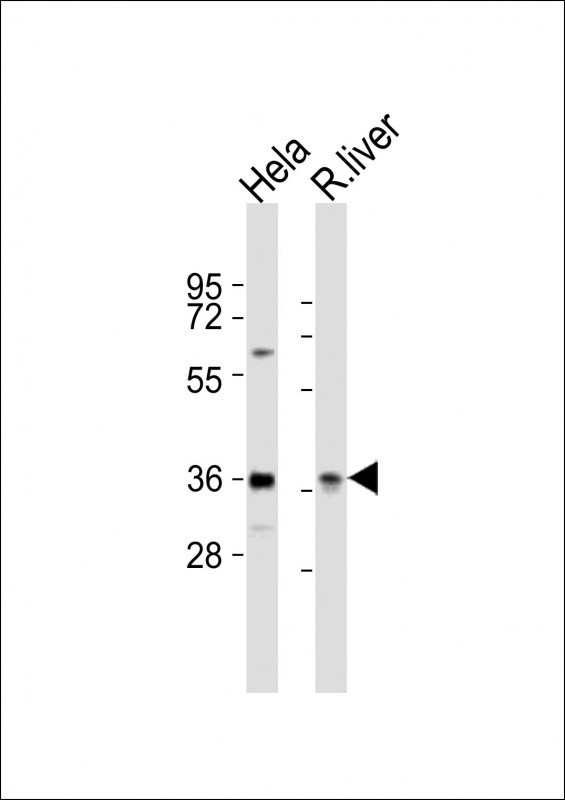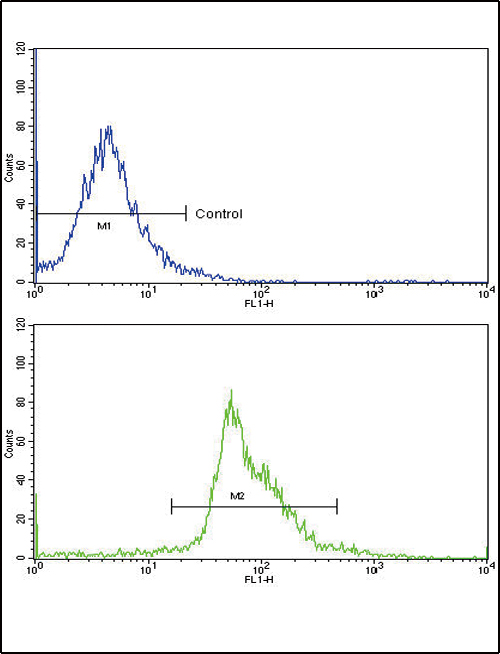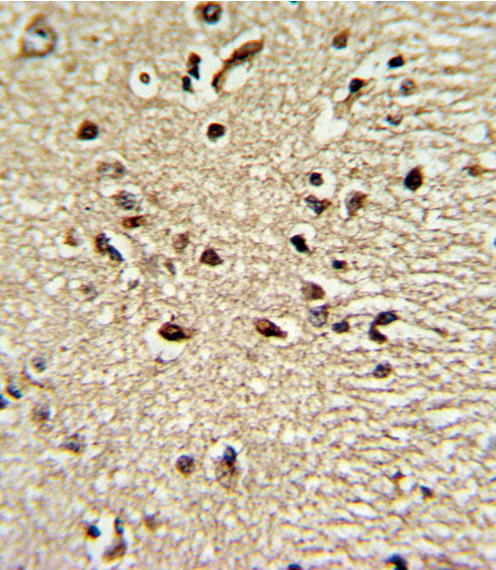



| WB | 1/1000-1/2000 | Human,Mouse,Rat |
| IF | 咨询技术 | Human,Mouse,Rat |
| IHC | 1/100-1/500 | Human,Mouse,Rat |
| ICC | 技术咨询 | Human,Mouse,Rat |
| FCM | 1/10-1/50 | Human,Mouse,Rat |
| Elisa | 咨询技术 | Human,Mouse,Rat |
| Aliases | Paired box protein Pax-4, PAX4 |
| WB Predicted band size | 37.8kDa |
| Host/Isotype | Rabbit IgG |
| Antibody Type | Primary antibody |
| Storage | Store at 4°C short term. Aliquot and store at -20°C long term. Avoid freeze/thaw cycles. |
| Species Reactivity | Human, Mouse, Rat |
| Immunogen | This PAX4 antibody is generated from rabbits immunized with a KLH conjugated synthetic peptide between 171-200 amino acids from the Central region of human PAX4. |
| Formulation | Purified antibody in PBS with 0.05% sodium azide,1%BSA and 50% glycerol.prepared by Saturated Ammonium Sulfate (SAS) . |
+ +
以下是3篇关于PAX4抗体的代表性文献,信息基于公开研究内容概括:
---
1. **文献名称**:*PAX4 mutations in early-onset diabetes: implications for pancreatic β-cell development and function*
**作者**:Sosa-Pineda B, et al.
**摘要**:该研究利用PAX4特异性抗体进行免疫组化分析,发现PAX4基因突变与早发性糖尿病相关。抗体检测显示突变导致胰腺β细胞发育异常,提示PAX4在胰岛细胞分化中的关键作用。
---
2. **文献名称**:*Immunolocalization of PAX4 in human gastric cancer and its correlation with clinical outcomes*
**作者**:Wang L, et al.
**摘要**:通过PAX4抗体进行免疫组织化学染色,发现PAX4在胃癌组织中异常高表达,且与肿瘤侵袭性及患者预后不良相关。研究支持PAX4作为潜在癌症生物标志物的可能性。
---
3. **文献名称**:*PAX4 antibody validation for flow cytometry in pancreatic progenitor cells*
**作者**:Zhang Y, et al.
**摘要**:验证了PAX4抗体在流式细胞术中的应用,确认其特异性标记胰腺祖细胞。研究为干细胞向β细胞分化实验提供了可靠的检测工具,并优化了抗体使用条件。
---
**注**:以上文献信息为示例性概括,实际引用时需以具体论文内容为准。建议通过PubMed或Google Scholar以关键词“PAX4 antibody”+研究领域(如糖尿病、癌症)进一步检索。
The PAX4 antibody is a crucial tool in studying the role of the PAX4 (Paired Box 4) protein, a transcription factor encoded by the *PAX4* gene. PAX4 belongs to the PAX family of proteins characterized by a conserved DNA-binding paired box domain. It plays a pivotal role in embryonic development, particularly in the differentiation and maintenance of pancreatic β-cells, which are essential for insulin production. Dysregulation of PAX4 has been linked to diabetes mellitus, including maturity-onset diabetes of the young (MODY), as well as certain cancers due to its involvement in cell proliferation and apoptosis.
PAX4 antibodies are widely used in research to detect PAX4 expression in tissues, such as pancreatic islets, and to investigate its functional mechanisms. These antibodies enable techniques like Western blotting, immunohistochemistry, and immunofluorescence, helping to visualize PAX4 localization and quantify its levels under varying physiological or pathological conditions. Studies utilizing PAX4 antibodies have revealed its dual role: while it promotes β-cell development, its overexpression or mutations may contribute to tumorigenesis in organs like the prostate or thyroid.
Additionally, PAX4 antibodies aid in exploring therapeutic strategies for diabetes, such as β-cell regeneration, and in understanding genetic mutations associated with diabetic phenotypes. Their specificity and reliability are critical for distinguishing PAX4 from homologous family members (e.g., PAX6) and validating experimental models. Overall, PAX4 antibodies are indispensable for unraveling the protein’s regulatory networks and translational potential in metabolic and oncological research.
×